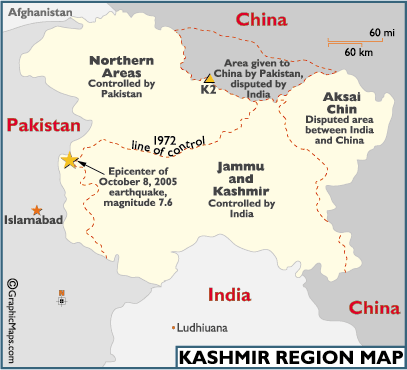"Obama accused of neglecting India
By Amy Kazmin in New Delhi
Published: June 7 2009 18:54 | Last updated: June 7 2009 18:54
President Barack Obama appears less interested in pursuing a “special relationship” with India than his predecessor as US leader, says Kashmir’s chief minister.
Omar Abdullah says this state of affairs reduces the likelihood that Washington can nudge New Delhi and Islamabad to resolve their decades-old conflict over the troubled state.
While campaigning for the US presidency last year, Mr Obama said one of his “critical tasks” would be to help settle the poisonous Kashmir dispute, as part of the wider effort to stabilise south Asia, including Afghanistan.
His words provoked expectations among the disgruntled, mostly-Muslim residents of Indian-administered Kashmir that Washington would try to broker a deal to end a conflict that has claimed about 70,000 lives, mostly civilians, and left 500,000 Indian troops, there.
But Mr Obama’s words raised hackles in New Delhi and were described by Selig Harrison, a top US expert on Asia, as Mr Obama’s “first big foreign policy mistake”. India’s national security adviser was sufficiently affronted to warn the new president last February against “barking up the wrong tree”.
Now Mr Abdullah, the 39-year-old scion of Kashmir’s most prominent political dynasty, says he sees little sign of Mr Obama’s administration taking sustained interest in the divided province, where resentment at India’s heavy military presence erupted in violent protests last week.
“I don’t think Kashmir will be a very important factor in the direction of Indo-US relations,” Mr Abdullah told the Financial Times in his heavily guarded Srinagar office. “Priorities in the White House will determine the relationship.”
He added: “Already there is a sense that is developing that perhaps India is not as important in President Obama’s scheme of things as it was in President George Bush’s scheme of things.
“Perhaps President Obama doesn’t see the strategic need for this relationship as much as President Bush did.”
India and Pakistan have thrice warred over Kashmir, and both have troops massed along the line of control dividing the province.
Islamabad has backed a separatist insurgency against India there. The two governments neared a settlement before Pakistan’s Pervez Musharraf lost power, but relations have deteriorated since last November’s terror attacks in Mumbai.
Washington is keen for New Delhi to reduce its troop presence in Kashmir to encourage Islamabad to redeploy more of its troops to the struggle against domestic militancy. However, Mr Abdullah said troop reductions were unlikely in the current climate, with militants still trying to cross from Pakistan into Indian-controlled Kashmir.
“You cannot expect the government of India to withdraw the troops in the kind of number that is being suggested with the attempts at infiltration into Kashmir being what they are,” he said. “It has to be determined by India’s own security and strategic concerns.”
Mr Abdullah said prospects for dialogue between India and Pakistan would be helped by “greater stability across the border” and that he would still push for renewed talks, despite his low expectations of progress.
“At some point, we are going to have to start talking to each other again,” he said. “There are just too many issues that are hanging fire, and they need to be resolved.”
Copyright The Financial Times Limited 2009"









































No comments:
Post a Comment